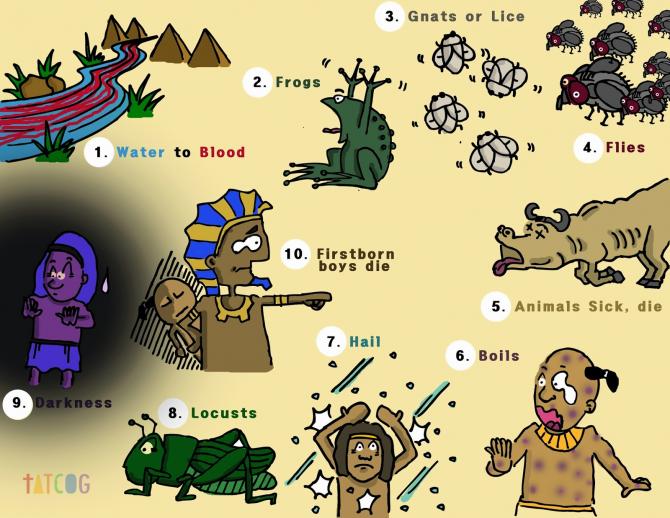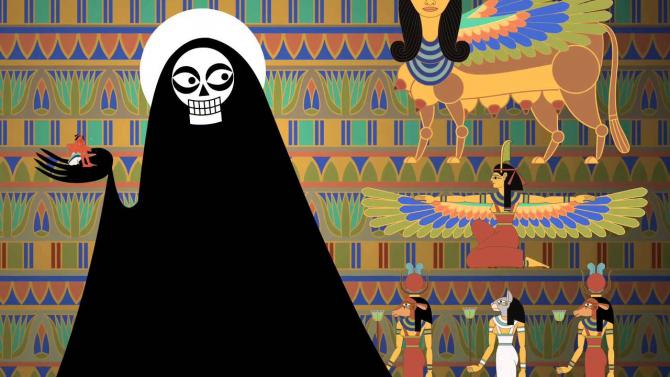Rabbi Sol Solomon’s Rabbinical Reflection #121 (4/5/15) – Passover
airs April 5, 2015 on Dave’s Gone By. Youtube clip: http://youtu.be/P5iBQJD75tg

Shalom Dammit! This is Rabbi Sol Solomon with a Rabbinical Reflection for the week of April 5, 2015.
Friends, are you constipated? I certainly hope so, because that would mean you are eating your matzah, the traditional food of the Passover holiday, which we are in the midst of celebrating as we speak. Well, as I speak; you’re just listening.
But yes, Passover is one of the most important Jewish holidays—certainly the most labor intensive. Other holidays, you cook a meal, you make a blessing, maybe you don’t eat for a day—boom, you’re done. Okay, Sukkos, you have to build a little house, which is a pain in the ass, but you get to use it for a week, and you can make believe it’s a gazebo or a cozy shed. And if you’re too lazy to build, you can always go to the local shul and stay in theirs. Just make sure to use the guest towels.
But Pesach? Oy, what a production. You have to clean the whole house, top to bottom, of every crumb, every last bit of leavened bread. You have to sell everything in your fridge and cupboards to your local Rabbi--because what Rabbi doesn’t want to be responsible for two-week-old meatloaf? You gotta change all your dishes and cutlery, because a fork that touched pizza is somehow satanic for a week. And then, throughout Passover, you can eat only foods that are approved for holiday use. Wheat and beans and whole-grain products are verboten, and everything you reach for has to be certified Kosher L’Pesach. Which means a bottle of ketchup that’s $2 the rest of the year now costs $7.50. Why? Because some mashgiach was there to make sure that no tomato came into contact with a pretzel. HaShem forbid.
It’s a lot of nonsense, of course, but like all religious rituals, the doing of them forces us to remember who we are and the legacy to which we are tied. God doesn’t give a rat’s tushie if we hide the Afikomen or not; but my great, great, great grandfather hid the Afikomen—probably from the Cossacks—and my 21 ½ children will hide the Afikomen from my (god willing) 150 grandchildren. It’s not the activity; it’s the legacy.
Or, on Passover, it’s leprosy. And blood and frogs and boils and murrain and darkness and death of the first born and all the things usually caused by Comcast/Xfinity. We remember the 10 Plagues God visited upon the Egyptians as payback for subjugating the Hebrews. And when Moses visited Pharaoh and told him, “Look, we’re leaving. Can we get a severance check and a few weeks of interim health insurance?”, Pharaoh said no, so God made him suffer. Actually, Pharaoh didn’t say no. I mean, at first he did, when Moses was turning water into blood and making frogs jump out of underwear drawers. Pharaoh saw a bunch of magic tricks and said, “Copperfield does them better.” But as the plagues turned nastier, Pharaoh was ready to be done with the Jews and let our people go. Until HaShem hardened his heart–I guess with some kind of aortic Viagra–and forced Pharoah to make ruinous choices, essentially robbing the king of Egypt of his free will.
I admit, I’ve always found something unsettling in that story. It’s one thing if Pharaoh is so evil, or so moronic, that he invites torture upon his empire through his own pig-headedness. But the Torah makes it clear that God is pulling the strings. He’s like the schoolyard bully that grabs your fists and makes you sock yourself in the face, all the while saying, “Stop hitting yourself. Why are you hitting yourself?” In the Pesach story, God puts Pharaoh through ten rounds with Mike Tyson, and then a bonus round with Muhammad Ali. The Jews finally hit the road, Pharaoh sends soldiers after them—presumably all second-born sons--and what happens? They all drown. God is nothing if not thorough.
So what do we learn from that gruesome fable? First, that if you mess with the Jews long enough, you get payback of biblical proportions (pun intended). After all, the Hebrews served as Egyptian slaves for generations before the big rescue. Stopping the punishment at flies or even flaming hail just wouldn’t send the same message as mass murder.
The second thing we learn is a rational reason why we spill drops of wine during the Passover seder. The Haggadah explains that even though Pesach is a happy holiday, and we’re delighted to recall the deliverance of Israel from Egypt, we’re not supposed to celebrate a hundred percent. We diminish our wine glass literally and our joy metaphorically, because even though our enemy treated us worse than the worst Jennifer Lopez movie, they are still human beings. They are still God’s children being destroyed.
Personally, I don’t spill a whole lotta wine on Passover—and not just because we have to use the same tablecloth for two nights. I rejoice freely when my enemy falls. When the Navy Seals took out bin Laden, I tore off my clothes and started dancing naked around the house. Which caused some problems because I was outside. But oh boy, did I shake my tailfeather! Miley Cyrus could have studied my tuchas for twerking lessons. And if I’d been alive in 1945 to witness V-E Day, I would have kissed a girl for every German that got a bullet through his eye or a bayonet through his heart. (You could probably call it VD Day…) I still would do this, so if any young girls want to stand in the street and let me kiss them, drop me an email, and I’ll get my sailor suit out of the cleaners.
Don’t get me wrong; I like the idea of being a good sport when my adversary is vanquished, but in reality, the misery and death of my enemies gives me less pause than a skip on my CD player. (For those of you under 30 who don’t know what that is, a CD player is like Spotify on a pancake.)
Anyhoo, my point in all this is however you celebrate Passover—if you follow all the rules, some of the rules, or if you serve bacon croissants during the Seder—and however you feel about Passover—whether you’re there just for family or you’re looking for a greater spiritual purpose in choking to death on horse radish—enjoy the holiday, appreciate the history, and take comfort that you don’t have to fast and no one gets circumcised.
This has been a Rabbinical Reflection from Rabbi Sol Solomon, Temple Sons of Bitches in Great Neck, New York. Day-Day-enu.
(c) 2015 TotalTheater. All rights reserved.

